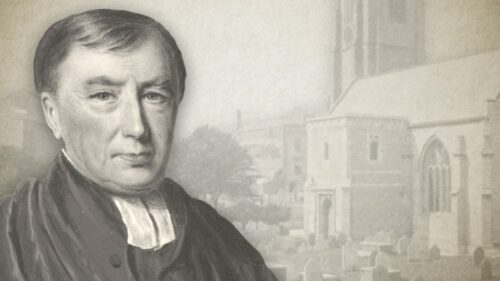
August 14—Morning Devotion
“And shall not God avenge his own elect, which cry day and night unto him, though he bear long with them? I tell you that he will avenge them speedily.”—Luke 18:7,8
My soul, mark for thy encouragement, in all thine approaches to a throne of grace, what Jesus here speaks, and never lose sight of it. Remember how well acquainted he, who came out of the bosom of the Father, must be with the Father’s mind and will towards his people, over and above the gracious exercise of his priestly office in their behalf. Now, my soul, do mark down distinctly what blessed things are here promised. First—God’s people are said in it to be his elect, his chosen, his jewels. “This people,” saith God, “I have formed for myself; they shall shew forth my praise.” Secondly—God’s people are a praying people; “they cry day and night to him;” they are unceasing in their applications; and they wrestle, like their father Jacob in prayer: “Lord, I will not let thee go except thou bless me.” Give me Jesus, and in him I shall have all things. He will subdue this corruption; he will soften this affliction; he will conquer Satan, and with him, all his temptations. Thirdly—God’s people will and must be exercised. There will be sometimes long silence at the throne. The enemy will endeavour to improve this to strengthen his temptation; he will suggest, ‘God hath forgotten thee; he will return no more; he hath cast thee off.’ Lastly—mark what Jesus saith; “Shall not God avenge his own elect, who cry day and night unto him, though he bear long with them?” Yes, yes, he will, I tell you, saith one who could not be mistaken; “he will avenge them, and that speedily.” When the hour of deliverance comes, it shall come so sudden, so sweet, so unexpected, that all their long waiting shall be forgotten; and it shall seem as if that promise of answering before they called was in it. And he will not only bless them, but avenge them of their foes. And whence all this, my soul, but because he is the Father of mercies, and God of all consolation. His people are his chosen, the gift of his love, the purchase of Jesus’s blood, the conquests of his Holy Spirit. Lord, cause me ever to keep those precious things in remembrance, and to hang on, and hold out, and never, never to give over pleading in Jesus, until I hear that precious voice, “Be it unto thee, even as thou wilt.”
Robert Hawker (1753-1827) was an Anglican (High-Calvinist) preacher who served as Vicar of Charles Church, Plymouth. John Hazelton wrote of him:
“The prominent features…in Robert Hawker's testimony…was the Person of Christ….Dr. Hawker delighted to speak of his Lord as "My most glorious Christ.” What anxious heart but finds at times in the perusal of the doctor's writings a measure of relief, a softening, and a mellowing? an almost imperceptible yet secret and constraining power in leading out of self and off from the misery and bondage of the flesh into a contemplation of the Person and preciousness of Christ as "the chiefest among ten thousand and the altogether lovely." Christ and Him crucified was emphatically the burden of his song and the keynote of his ministry. He preached his last sermon in Charles Church on March 18th, 1827, and on April 6th he died, after being six years curate and forty-three years vicar of the parish. On the last day of his life he repeated a part of Ephesians 1, from the 6th to the 12th verses, and as he proceeded he enlarged on the verses, but dwelt more fully on these words: "To the praise of His glory Who first trusted in Christ." He paused and asked, "Who first trusted in Christ?" And then made this answer: "It was God the Father Who first trusted in Christ."
Robert Hawker on the Biblical Covenants (Complete)
Robert Hawker's Poor Man's Morning Portions





